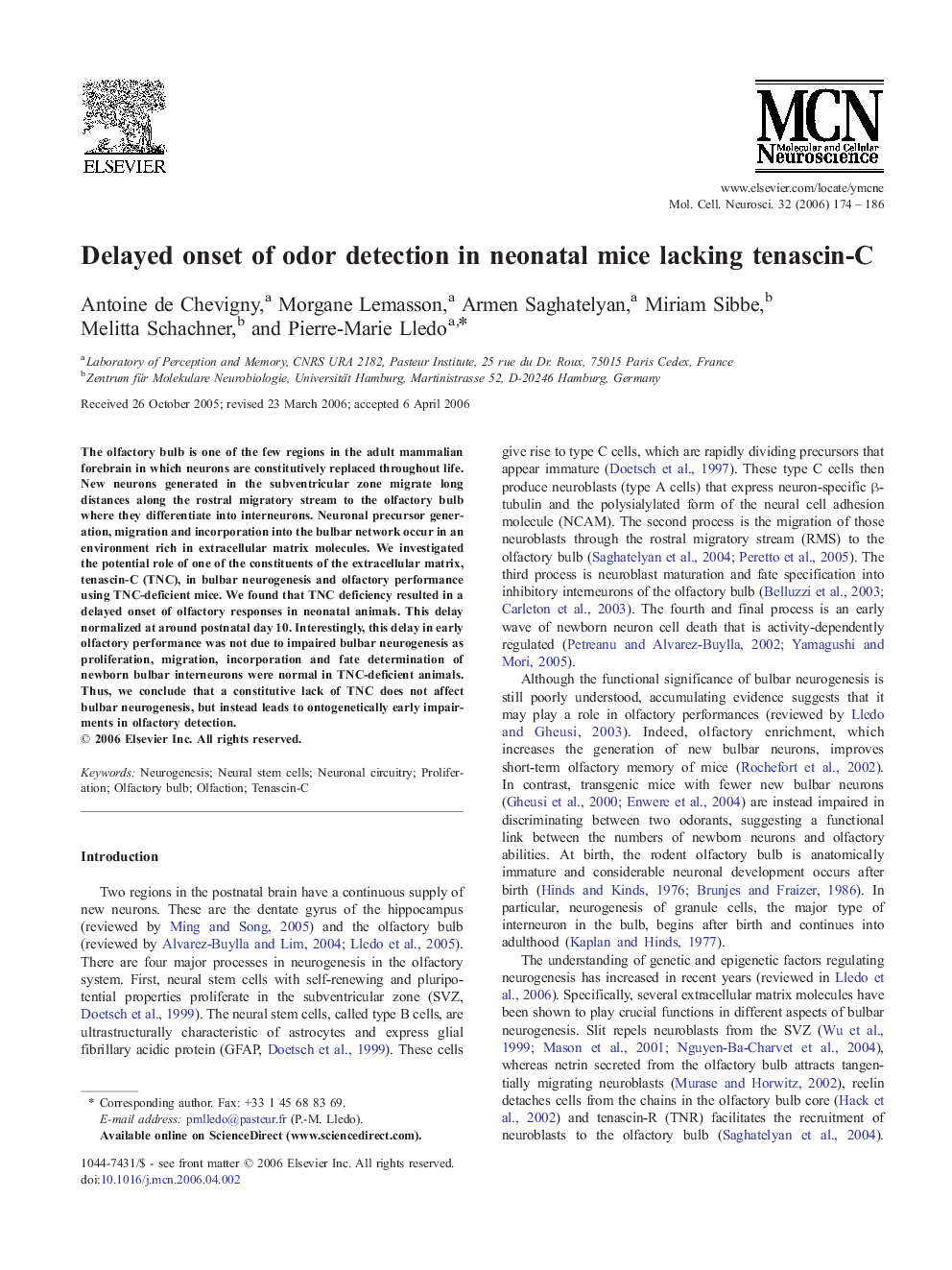| Article ID | Journal | Published Year | Pages | File Type |
|---|---|---|---|---|
| 2199431 | Molecular and Cellular Neuroscience | 2006 | 13 Pages |
The olfactory bulb is one of the few regions in the adult mammalian forebrain in which neurons are constitutively replaced throughout life. New neurons generated in the subventricular zone migrate long distances along the rostral migratory stream to the olfactory bulb where they differentiate into interneurons. Neuronal precursor generation, migration and incorporation into the bulbar network occur in an environment rich in extracellular matrix molecules. We investigated the potential role of one of the constituents of the extracellular matrix, tenascin-C (TNC), in bulbar neurogenesis and olfactory performance using TNC-deficient mice. We found that TNC deficiency resulted in a delayed onset of olfactory responses in neonatal animals. This delay normalized at around postnatal day 10. Interestingly, this delay in early olfactory performance was not due to impaired bulbar neurogenesis as proliferation, migration, incorporation and fate determination of newborn bulbar interneurons were normal in TNC-deficient animals. Thus, we conclude that a constitutive lack of TNC does not affect bulbar neurogenesis, but instead leads to ontogenetically early impairments in olfactory detection.
